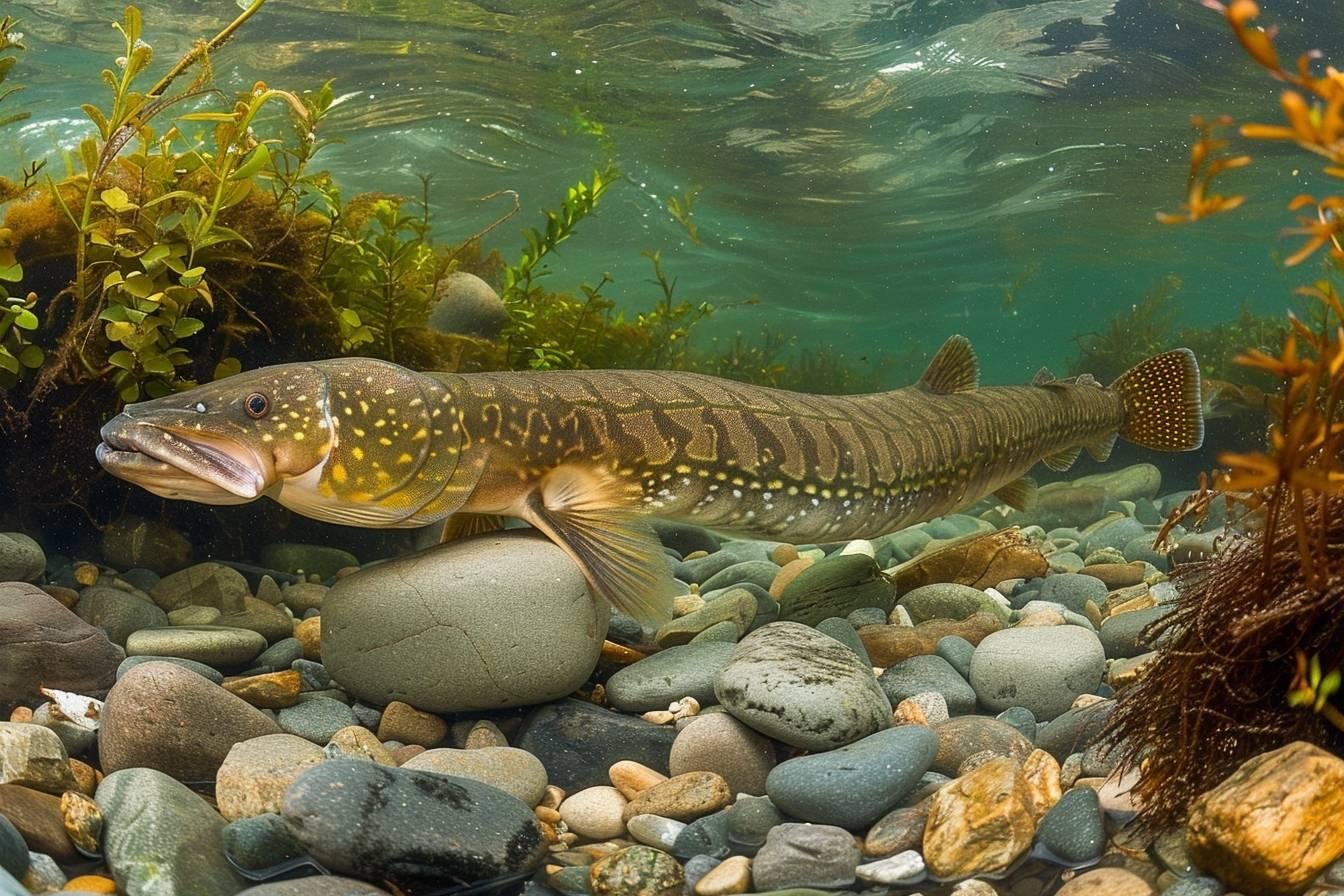The article in brief
This article explores the fascinating characteristics of the monkfish, a unique fish found in both sea and freshwater.
- Unique appearance disproportionate head and flattened body for monkfish
- Culinary qualities delicate flesh and no edges
- A varied habitat oceans for monkfish, rivers and lakes for freshwater monkfish
- Ecological interest : important role in the balance of aquatic ecosystems
- Preservation issues Fishing down in recent years
The burbot, that strange-looking fish, fascinates as much as it intrigues. As a marine animal enthusiast, I've always been captivated by these very special aquatic creatures. Let me share with you what I know about this interesting inhabitant of the deep, whether from the sea or freshwater.
The monkfish: an interesting ocean creature
La monkfishalso known as anglerfish, is a fish that leaves no one indifferent. With its disproportionately large head and flattened body, it's a real eye-catcher! I've had the chance to observe them during my visits to marine pet shops, and I can assure you that their appearance is truly unique.
Habitat and physical characteristics
This fish inhabits the waters of the Atlantic Ocean, the Mediterranean Sea and the English Channel. Monkfish can grow to impressive sizes, averaging 1 metre in length, but some specimens can reach up to 2 metres and weigh 45 kg! Its scaleless body and huge mouth have earned it unflattering nicknames such as "toad" or "sea devil".
Delicate, prized meat
Despite its unappetising appearance, monkfish hides a treasure trove of flavour. Its fine, firm flesh is a real treat for seafood lovers. It is often sold as "monkfish tail", with the head removed. It is a versatile fish in the kitchen, lending itself to a variety of preparations:
- Grilled
- In sauce
- Rôtie
- Pochée
- En papillote
Fishing season
For lovers of this fish, the ideal time to try monkfish is from September to June. These are the months when you'll find the tastiest specimens on your fishmonger's shelves.
The freshwater burbot: a discreet river cousin
Less well known than its marine cousin, the freshwater monkfish is no less captivating. Also known as river pout, it belongs to the Gadidae family, like whiting and cod. I've had the opportunity to observe them in freshwater aquariums, and I can tell you that their behaviour is just as captivating as that of their marine counterparts.
Characteristics and habitat
The freshwater burbot is smaller than its marine cousin, measuring between 25 and 50 cm and weighing between 500 g and 2 kg. Its marbled coat allows it to blend in perfectly with its environment. It is found in cold-water rivers and lakes, where it leads a rather nocturnal life, hunting at depths of 50 to 70 metres.
Life cycle and diet
The breeding season for freshwater burbot runs from November to February. These fish feed mainly on worms, crustaceans, molluscs, eggs and fry. Their varied diet helps to maintain the ecological balance of their habitat.
| Features | Monkfish | Freshwater monkfish |
|---|---|---|
| Medium size | 1 m | 25-50 cm |
| Average weight | Up to 45 kg | 500 g - 2 kg |
| Habitat | Ocean, sea | Rivers, lakes |
| Fishing season | September to June | All year round |

Nutrition and gastronomy
Whether sea or freshwater monkfish, these fish have interesting nutritional qualities. Rich in protein and low in fat, they are an excellent choice for a balanced diet. I once had the opportunity to taste monkfish liver, considered a delicacy, and was pleasantly surprised by its refined flavour.
Preservation and consumption
It's important to note that monkfish can be kept for a short time after being fished. If you buy it, make sure you eat it quickly to make the most of its freshness. Unfortunately, fishing and consumption of monkfish have declined in recent years, raising questions about the sustainability of this resource.
Culinary preparation
The meat of monkfish, whether from the sea or freshwater, is particularly prized for its lack of bones. This makes it ideal for a variety of culinary preparations. Here are a few recipe ideas to make this fish stand out:
- Armorican-style monkfish
- Monkfish kebabs with bacon
- Monkfish curry with vegetables
- Salt-crusted monkfish
As an aquatic animal enthusiast, I can't help but encourage you to discover these fascinating fish. Whether it's the sea monkfish with its singular allure or the more discreet freshwater monkfish, these creatures deserve our attention and respect. Let's not forget that preserving them is essential to maintaining the balance of our aquatic ecosystems.
To find out more about fish farming, check out these interesting resources: wiki aquaculture and wiki fish farming.
